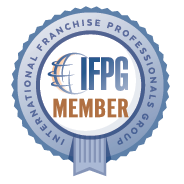When most people think about funding a franchise, they imagine using personal savings or taking out a loan. But there’s another option that many franchise owners use — one that most people have never heard of.
It’s called a ROBS (Rollover as Business Startup), and it allows you to use money from a 401(k) or IRA to invest in your business. You don’t pay taxes, you don’t face early withdrawal penalties, and you don’t have to take out a loan.
Here’s how it works and why it’s more common than you might think.
What Is a ROBS?
ROBS stands for Rollover as Business Startup. It’s a structure that allows you to move money from a retirement account into your new business without triggering taxes or penalties.
Here’s what happens:
-
You set up a C-corporation for your business.
-
That corporation creates a new 401(k) retirement plan.
-
You roll over funds from your existing 401(k) or IRA into the new plan.
-
The plan uses those funds to purchase stock in your company, giving you the capital to launch.
It’s not a loan. You’re not borrowing from yourself. You’re simply redirecting your retirement savings into a business you now own.
Why People Use This Method to Fund a Franchise
Thousands of franchise owners have used this method to fund all or part of their business. Here’s why:
1. No Taxes or Early Withdrawal Penalties
Normally, if you withdraw money from a retirement account before age 59½, you’re hit with a 10% penalty plus income taxes. With ROBS, there are no penalties or taxes because you’re rolling the money into a new qualified retirement plan — not cashing it out.
2. No Loans or Monthly Payments
ROBS gives you access to funding without taking on debt. You’re not subject to loan approval, interest rates, or repayment schedules. That means fewer financial obligations when you’re starting out.
3. You Can Use It Instead of Your Checking or Savings
Rather than depleting your personal savings or using funds you may need for your day-to-day life, you can use retirement funds specifically for the business.
Can Be Combined With SBA Loans or Other Funding
One of the most common uses of ROBS is to provide the liquidity injection required for SBA loans. Many lenders require borrowers to invest a certain amount of their own capital into the business. Retirement funds accessed through ROBS often meet that requirement.
Some franchise buyers use ROBS on its own, while others combine it with:
-
SBA 7(a) loans
-
Equipment financing
-
Personal cash
-
Other unsecured funding options
This flexibility can help you build a complete funding package for your business.
You’re Investing in a Business — Not Just Pulling Money Out
This isn’t about taking money out of retirement. It’s about reallocating it into a new opportunity. Your retirement funds remain invested — only now, they’re invested in the business you’re building instead of the stock market.
For many people, that’s a better fit for where they are in life. It gives them more control over how their money is being used.
What to Consider
ROBS is not for everyone, and it does need to be set up properly to stay in compliance with IRS and Department of Labor rules. You’ll need to:
-
Form a C-corporation
-
Work with a provider who specializes in ROBS setups and compliance
-
Be prepared to play an active role in the business (this isn’t for passive investors)
It’s also important to understand that this strategy is typically best for people who are fully committed to owning and operating the business.
Is This a Good Fit for You?
ROBS is often a good fit if:
-
You have at least $50,000 in a 401(k) or IRA from a previous employer
-
You want to avoid taking on debt
-
You’re serious about franchise ownership
-
You plan to actively run the business
If that sounds like you, this is a method worth exploring — especially if you’re struggling to pull together the full investment through cash or loans alone.
Final Thoughts
Most people don’t realize they can use retirement funds to start a business. But many franchise owners do exactly that — and do it without taxes, penalties, or traditional financing.
If you’re exploring franchise ownership and want to understand all your funding options, including ROBS, it’s worth having a conversation with someone who can walk you through the process.





